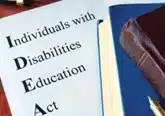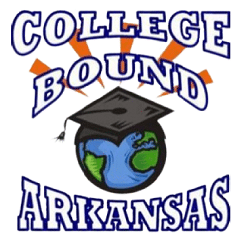The Governor’s Council on Developmental Disabilities Arkansas advocates for policy and system changes that improve the quality of life for individuals with developmental disabilities and their families. One of our policy priorities is supporting inclusive education. We expect a safe, comprehensive, and inclusive education for every Arkansas student. The Individuals with Disabilities Education Act (IDEA) governs how states and public agencies provide early intervention, special education, and related services to eligible infants, toddlers, children, and youth with disabilities.
The Council works with individuals, families, agencies, and organizations to promote the Arkansas Disability Policy Platform. This platform lays out our priorities for positive change. You can learn more here on our public policy page https://gcdd.arkansas.gov/council/legislation-public-policy/
What is the Individuals with Disabilities Education Act (IDEA)?

The Individuals with Disabilities Education Act (IDEA) is a law ensuring services to children with disabilities throughout the nation. IDEA governs how states and public agencies provide early intervention, special education, and related services to eligible infants, toddlers, children, and youth with disabilities. Infants and toddlers with disabilities (birth-2) and their families receive early intervention services under IDEA Part C. Children and youth (ages 3-21) receive special education and related services under IDEA Part B.
The IDEA was originally enacted by Congress in 1975 to ensure that children with disabilities have the opportunity to receive a free appropriate public education. The law has been revised many times over the years. Amendments were passed in December 2004, when Congress reauthorized the IDEA. More recently, the IDEA was amended through Public Law 114-95, the Every Student Succeeds Act, in December 2015.
In the law, Congress states:
Disability is a natural part of the human experience and in no way diminishes the right of individuals to participate in or contribute to society. Improving educational results for children with disabilities is an essential element of our national policy of ensuring equality of opportunity, full participation, independent living, and economic self-sufficiency for individuals with disabilities.
The major purposes of IDEA are:
- to ensure that all children with disabilities have available to them a “free appropriate public education” that emphasizes special education and related services designed to meet their unique needs and prepare them for further education, employment, and independent living
- to ensure that the rights of children with disabilities and their parents are protected
- to help States, localities, educational service agencies, and Federal agencies provide for the education of all children with disabilities
- to assess and ensure the effectiveness of efforts to educate children with disabilities
Four key terms frequently used in IDEA are:
- a free appropriate public education (FAPE)
- child with a disability
- individualized education program (IEP)
- special education
- related services
Understanding what each of these terms means is a crucial part of implementing IDEA. For parents, these terms are central in determining their child’s eligibility for services and what those services may include.

Click here to find a reference list of key terms with definitions from the Center for Parent Information and Resources: https://www.parentcenterhub.org/wp-content/uploads/repo_items/brief-fape-reference-list.pdf
You can also visit the U.S. Department of Education’s IDEA website to learn more: https://sites.ed.gov/idea/
or here for Arkansas-specific information https://sites.ed.gov/idea/state/arkansas/
Birth to Three (3) Years Old
In Arkansas, the lead agency for Part C of IDEA Early Intervention Program (for children from birth to 3 years) is the Arkansas Department of Human Services Division of Developmental Disabilities Services. This early intervention is provided through the First Connections program.
You can find this program online at https://www.firstconnectionsar.org/
Contact First Connections by phone at 800-643- 8258 or by email at [email protected]
Three (3) Years to 21 Years Old
The lead agency in Arkansas for IDEA Part B (for children and young adults, ages 3-21 years), is the Arkansas Department of Education Office of Special Education (DESE). You can find information on these programs online at https://dese.ade.arkansas.gov/Offices/special-education or contact the Office of Special Education by phone at 501-682-4221.
Find DESE Parent and Family Resources at: https://dese.ade.arkansas.gov/Offices/special-education/parent-and-family-resources
The DESE website resources section includes a Family Guide to Special Education, a document listing your rights under the IDEA, along with other helpful links and information.
After High School
Rights to education for adults with disabilities are covered under Section 504 of the Rehabilitation Act of 1973 and under the Americans with Disabilities Act (ADA), which apply to postsecondary education. These laws are very different from the IDEA, which covers grades preK – 12. This means some adjustment of the perspectives of students, parents, and instructors is necessary when making the transition from high school to college.

See this resource on the differences IDEA vs ADA (504) from Arkansas Transition Services. Arkansas Transition Services is a consultant group that provides training and technical assistance related to secondary transition to special education teachers, other relevant school staff, and relevant agency personnel in Arkansas.
Students with intellectual and developmental disabilities (IDD) can and do attend college, university, trade, and /or vocational schools. Students with IDD have substantial, protected rights to continue their education. However, there are several significant differences in the rights and responsibilities of individuals with disabilities who are college-bound compared to those of elementary and secondary school students. The Americans with Disabilities Act (ADA) and Section 504 of the Rehabilitation Act of 1973 mandate equal access to postsecondary institutions for students with disabilities. This includes public universities, vocational schools, community colleges, and private institutions. Almost all institutions are affected by either the ADA or Section 504.
Think College provides resources, technical assistance, and training related to college options for students with intellectual disability, and manages the only national listing of college programs for students with intellectual disability in the United States.

College Bound Arkansas is a camp for high school juniors, seniors, or current graduates with disabilities who are considering college or university. Making decisions about post-secondary education can be overwhelming! College Bound Arkansas can help ease some of these feelings by providing information and the opportunity to ask questions of professionals who have knowledge and experience. Students stay in UCA dorms, helping them have a better understanding of what to expect of campus life. The camp is sponsored by Arkansas Transition Services and the University of Central Arkansas. Find out more here: https://arkansastransition.com/index.php/headed-to-college
Click here to Get the 2024 College Bound Arkansas flyer
Other Resources
Disability Rights Arkansas (DRA) advocates for the disability rights community. Visit DRA’s website for special education and IDEA resources like THE “BLUE BOOK” A Parent’s Guide to Civil Rights + Education or other valuable links and information here: https://disabilityrightsar.org/resources/
Contact their Intake Advocate by phone, toll-free at (800) 482-1174 or fill out the confidential online “Request Help” form anytime.
Arkansas Rehabilitation Services’ (ARS) mission is to prepare Arkansans with disabilities to work and lead productive and independent lives. Contact ARS by phone at 1-800-330-0632, or visit their websites for more information.
Vocational Training, Pre-Employment Transition Services https://dws.arkansas.gov/ar-rehabilitation-services/arkansas-career-development-center/vocational-training/
Transition Special Projects (Project SEARCH and Transition Employment Project) https://dws.arkansas.gov/ar-rehabilitation-services/transition-special-projects/
A Report on IDEA Compliance and Implementation in Arkansas Schools by the Arkansas Advisory Committee to the U.S. Commission on Civil Rights, issued January 2023
Check out the GCDD Arkansas Resources Links page where you can find more resources here.




